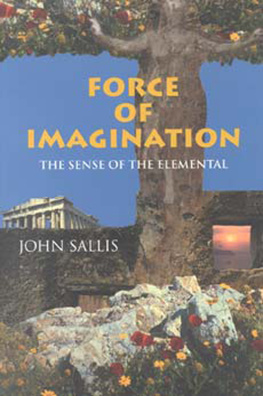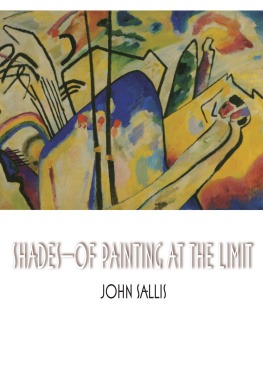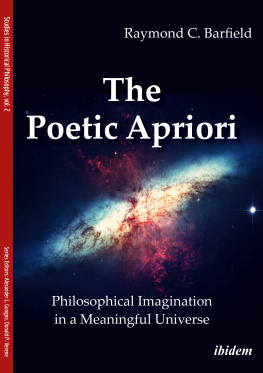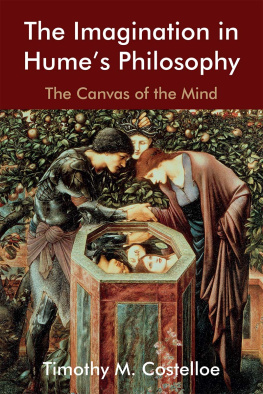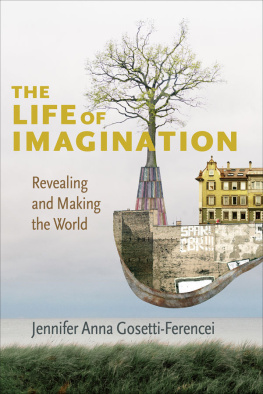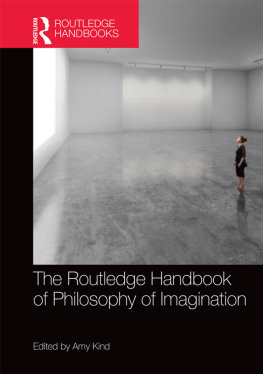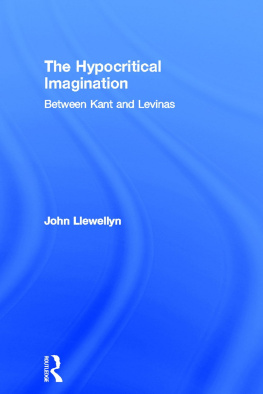John Sallis - Force of Imagination: The Sense of the Elemental
Here you can read online John Sallis - Force of Imagination: The Sense of the Elemental full text of the book (entire story) in english for free. Download pdf and epub, get meaning, cover and reviews about this ebook. year: 2000, publisher: Indiana University Press, genre: Religion. Description of the work, (preface) as well as reviews are available. Best literature library LitArk.com created for fans of good reading and offers a wide selection of genres:
Romance novel
Science fiction
Adventure
Detective
Science
History
Home and family
Prose
Art
Politics
Computer
Non-fiction
Religion
Business
Children
Humor
Choose a favorite category and find really read worthwhile books. Enjoy immersion in the world of imagination, feel the emotions of the characters or learn something new for yourself, make an fascinating discovery.
- Book:Force of Imagination: The Sense of the Elemental
- Author:
- Publisher:Indiana University Press
- Genre:
- Year:2000
- Rating:5 / 5
- Favourites:Add to favourites
- Your mark:
Force of Imagination: The Sense of the Elemental: summary, description and annotation
We offer to read an annotation, description, summary or preface (depends on what the author of the book "Force of Imagination: The Sense of the Elemental" wrote himself). If you haven't found the necessary information about the book — write in the comments, we will try to find it.
Force of Imagination
The Sense of the Elemental
John Sallis
A bold and original investigation into how imagination shapes thought and feeling.
This is a bold new direction for the author, one that he takes in an arresting and convincing manner.... a powerful, original approach to what others call ecology but what Sallis shows to be a question of the status of the earth in philosophical thinking at this historical moment. Edward S. Casey
In this major original work, John Sallis probes the very nature of imagination and reveals how the force of imagination extends into all spheres of human life. While drawing critically on the entire history of philosophy, Salliss work takes up a vantage point determined by the contemporary deconstruction of the classical opposition between sensible and intelligible. Thus, in reinterrogating the nature of imagination, Force of Imagination carries out a radical turn to the sensible and to the elemental in nature. Liberated from subjectivity, imagination is shown to play a decisive role both in drawing together the moments of our experience of sensible things and in opening experience to the encompassing light, atmosphere, earth, and sky. Set within this elemental expanse, the human sense of time, of self, and of the other proves to be inextricably linked to imagination and to nature. By showing how imagination is formative for the very opening upon things and elements, this work points to the revealing power of poetic imagination and casts a new light on the nature of art.
John Sallis is Liberal Arts Professor of Philosophy at Pennsylvania State University. His previous books include Being and Logos: Reading the Platonic Dialogues; ShadesOf Painting at the Limit; Stone; Chorology: On Beginning in Platos Timaeus (all published by Indiana University Press), Crossings: Nietzsche and the Space of Tragedy and Double Truth.
Studies in Continental ThoughtJohn Sallis, editor
Contents
Prolusions
On (Not Simply) Beginning
Remembrance
Duplicity of the Image
Spacing the Image
Tractive Imagination
The Elemental
Temporalities
Proprieties
Poetic Imagination
John Sallis: author's other books
Who wrote Force of Imagination: The Sense of the Elemental? Find out the surname, the name of the author of the book and a list of all author's works by series.

